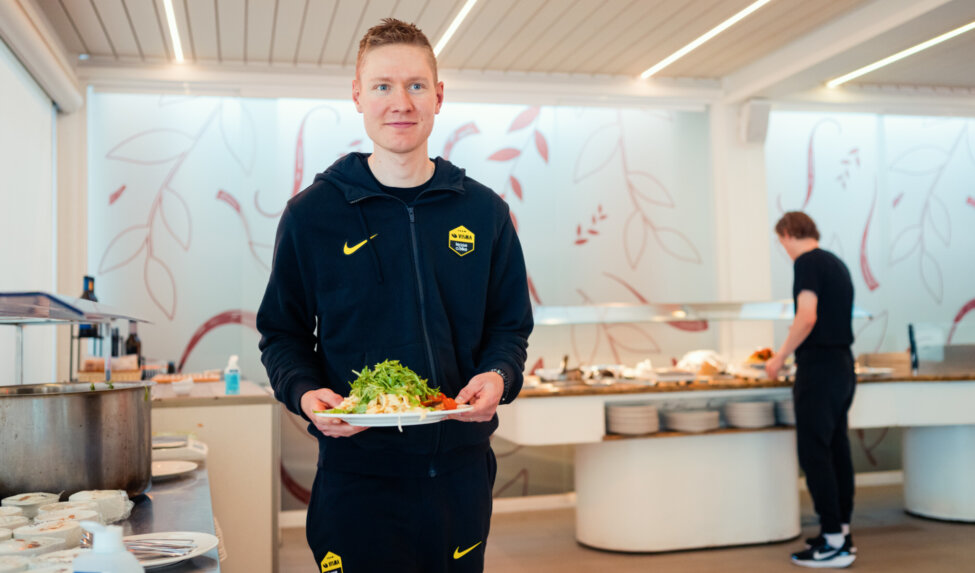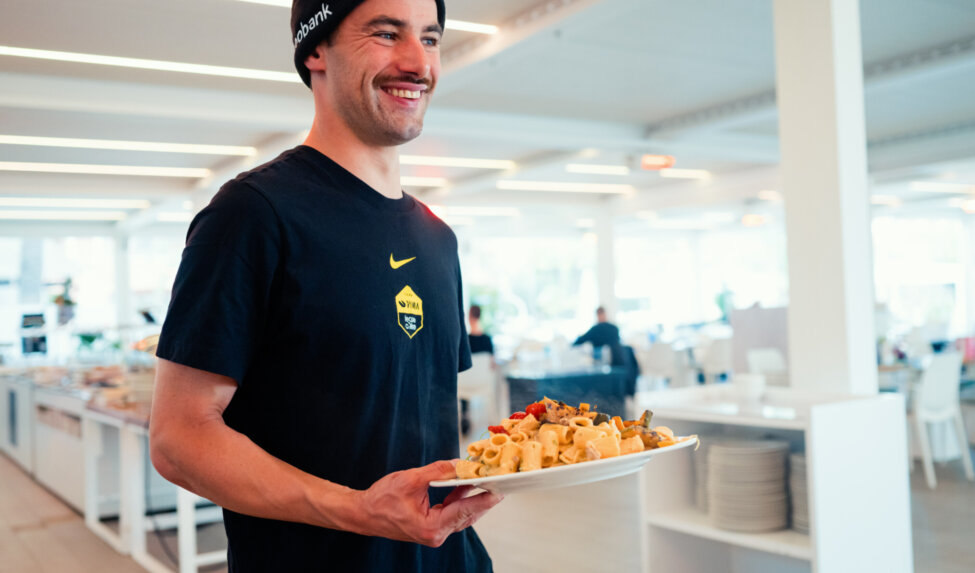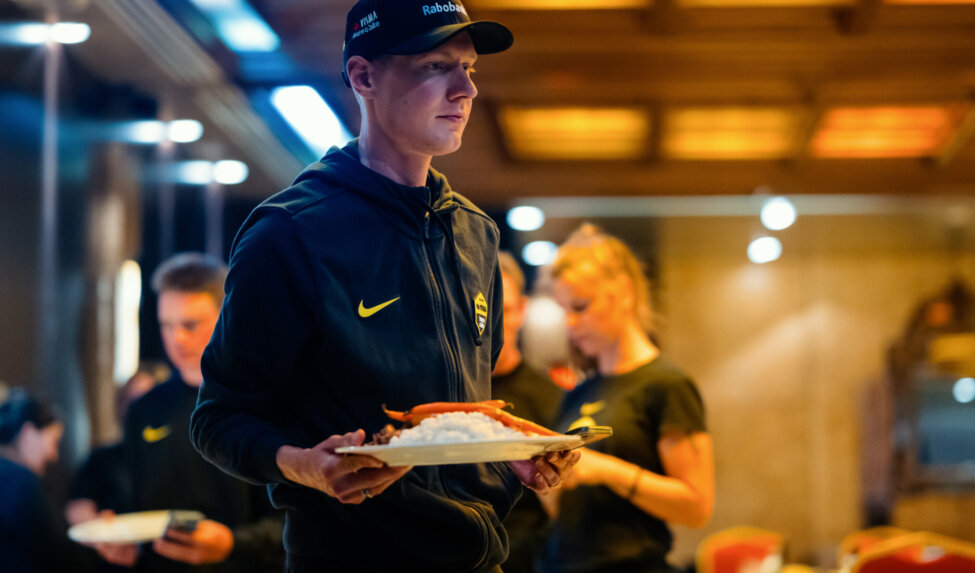5 nutrition tips to conquer the Alpe d’HuZes
The Alpe d’HuZes isn’t just another event, it’s a physically and emotionally demanding challenge with a purpose. Whether you're going for one ascent or aiming for all six, your legs need power, your mind needs clarity, and your body needs fuel. Here’s how to prepare, fuel up, and recover like a pro, with some final nutrition tips from The Athlete’s FoodCoach.
1. Support your immune system
In the final week leading up to the event, your body benefits from nutrient-rich meals to help it prepare for the physical challenge and maintain resilience.
What to do:
- Integrate enough protein to your meals for muscle repair, think eggs, yogurt, tofu, fish, and lean meats.
- Load up on iron-rich foods like leafy greens, lentils, and red meat to keep your red blood cells oxygen-ready.
- Color your meals with fruits and veggies packed with antioxidants to reduce inflammation and boost immunity.
Pro Tip: Use the FoodCoach app to plan your meals and hit your daily energy and macronutrient targets without the guessing.
2. Load up on carbs
If you’re gearing up for a long day in the saddle, carb loading can be very beneficial. In the days leading up to the event, gradually increase your intake of carbohydrate-rich foods. This helps to fill your muscles with glycogen, the fuel your body uses most during endurance efforts. With more energy ready to go, you’re less likely to hit the wall early and more likely to power through those switchbacks with strength and confidence.
What to do:
- Start increasing your carb intake 1–2 days before the event. Think pasta, rice, oats, bananas, and white bread.
- Keep it simple and digestible. Now is not the time for high-fiber or greasy meals.
- Test your carb-loading approach in advance during long training days, not the night before the climb.
Pro Tip: Not sure how many carbs you need? The FoodCoach app has your back with personalized targets. Read more on carb loading.
3. Mid-climb fueling
Climbing Alpe d’Huez multiple times means hours in the saddle. Your energy stores will drain quickly if you don’t replenish them. With just a few more days on the clock it’s the last chance to finalise your race-day fueling strategy and make sure your gut is on board.
What to do:
- Practice your race-day nutrition plan during your final training rides—don’t leave it to chance.
- Stick to what you know. This is not the time to experiment with snacks!
- Pack plenty of carbs for the ride and then a few extras. Better safe than sorry.
Pro Tip: Label your snacks by hour (e.g., “10AM bar”, “11AM gel”) or set a timer to remind you to eat. No guesswork, just smooth climbing.
4. Hydration matters
Even a little dehydration can mess with your focus and drain your energy, especially on days where the temperatures are building up.
What to do:
- Sip 500–750ml of fluid per hour, adjusting for heat and intensity.
- You typically don’t need fancy electrolytes unless you’re sweating buckets in extreme heat or riding over 4 hours straight.
- Prioritize recovery hydration with salty meals or snacks after the ride.
Pro Tip: Weigh yourself before and after training rides to learn how much fluid you lose. The FoodCoach app walks you through this in its ‘hydration during training’ medal challenge.
5. Recover like a pro
Even though Alpe d’HuZes is not a race, your body still undergoes intense stress. Especially if you do multiple climbs that day, your recovery after the event and for the days ahead matters.
What to do:
- Within 30 minutes post-ride: get carbs and protein in. Think chocolate milk, smoothie with banana and oats, or a protein bar to kickstart recovery.
- After the first kickstart, enjoy a delicious, protein-rich meal to celebrate your epic effort!
Pro Tip: Pack a recovery snack in your drop bag so it’s waiting for you at the finish line.
Climb with purpose, fuel your dreams
This ride is about more than just meters climbed, it’s about hope, community, and honoring the fight of so many lives. A solid nutrition plan won’t just fuel your legs; it frees your mind to focus on why you’re riding. So, prep like a pro, trust your training, and most of all, soak in every moment of this unforgettable day. You’ve got this!
About Alpe d'HuZes
Alpe d'HuZes is a unique sporting event where as much money as possible is raised for cancer research and for improving the quality of life of people with cancer. On a single day, 5000 participants will bike, hike or run the Alpe d'Huez. Attempting a maximum of six climbs, under the motto 'giving up is not an option'.
Since 2006, we have raised more than 226 million euros.
Multiple Team Visma | Lease a Bike employees will bike Alpe d'HuZes. Help to reach the goal and donate here.











